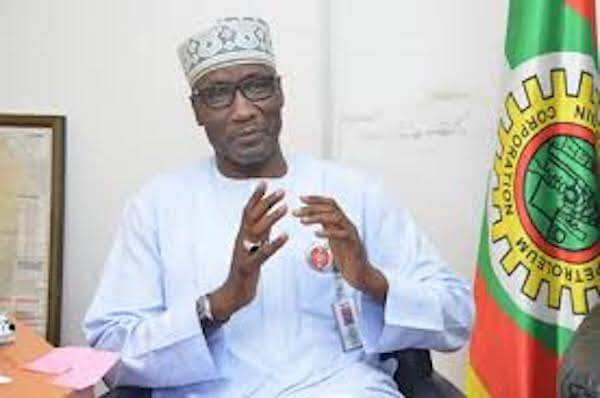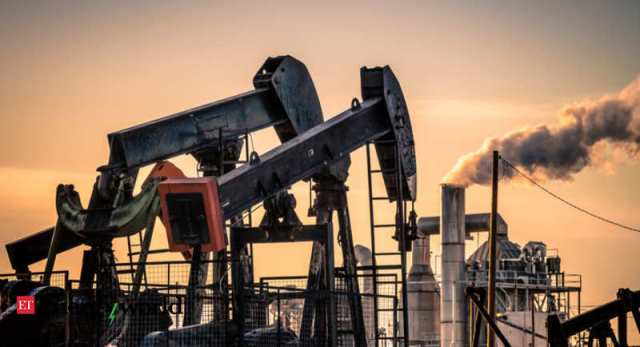The Group Managing Director of the Nigerian National Petroleum Corporation (NNPC), Mallam Mele Kyari has said the federal government was able to save over $400 million following the removal of its fuel subsidy policy in 2020.
The NNPC boss who said this in an exclusive interview with THISDAY, said he does not expect that the policy which had over the years drained the country’s scarce resources would be returned even when crude oil price rebounds.
According to Kyari, the federal government would deploy the amount saved to the development of critical infrastructure in the country.
The federal government in April bowed to long-standing pressure to restructure the downstream segment of the Nigerian oil industry through the removal of fuel subsidy, following the significant drop in the price of crude oil due to the coronavirus.
The government had said it would no longer be paying for under-recovery or subsidy on petrol.
But shedding more light on the government’s decision, Kyari in the interview with THISDAY said: “As you aware, the Minister of State for Petroleum resources has made policy statement based on presidential directives on the issue of fuel subsidy. Also, the Petroleum Products Pricing Regulatory Agency (PPPRA) has issued guidelines on the process for monitoring the pricing of petroleum products in the domestic market going forward.
“My personal view is that subsidy should be removed, and the funds deployed to areas of the economy particularly road infrastructure and education that need funds. Fuel subsidy is a misallocation of resources and it benefits mainly people who don’t need it; the rich.
“What we need is investment that upgrades the general good of the society and provide access and opportunity for social mobility for the poor. I do not foresee the return of subsidy when oil price rebounds. Just by removing subsidy in the 2020 budget, the nation is able to save over $400 million. The savings would be better deployed to education or upgrade of the critical infrastructure in the country.”
According to Kyari, ensuring energy security is one of the cardinal agenda of the President Buhari administration.
Furthermore, he said closely related to energy security was the rehabilitation and expansion of the local refining capacity.
He said the NNPC has continued to support initiatives towards the actualisation of zero import of refined products by 2024, adding that the corporation has adopted a three-pronged strategy. This includes – revamp, restructure and encourage.
“The revamp of the existing 445kbo capacity of NNPC refineries is ongoing with the engagement of world class EPC contractors; to avoid a process gap we are concurrently undertaking a review and restructuring of the business model for these existing refineries.
“To further show our commitment, we are partnering with our existing partners and other interested stakeholders. This support and encouragement is expressed in our support of the Dangote refinery, Waltersmith and the promotion of NNPC condensate refinery project.
“The NNPC condensate refining project expected to add additional 250kbo refining capacity to the NNPC portfolio. We have a number of interested partners and hope to make announcement on the Final Investment decision and project delivery timeline soon,” the NNPC GMD added.
According to Kyari, the NNPC is looking at different options that would deliver value for stakeholders and improve the performance or efficiency of the country’s refineries. The options he listed to include third party operational and maintenance model; long-term lease or a joint venture model similar to the structure obtainable today at the Nigeria LNG.
He, however, pointed out that irrespective of the form model adopted, the overriding interest would be to assure autonomy for refinery, embrace world class management and management practices and ensure value delivery to shareholders.
He emphasised that the corporation was determined to move away from any process or structure that does not deliver value or leads to an outcome not significantly different from the current state.
“I am determined to ensure that the refineries are brought back to their nameplate capacities,” he maintained.
Commenting on his medium-term projection for crude oil price, the GMD said: “at the fundamental level, oil price determination is an interplay of demand and supply dynamics. However, sentiments or speculative behavior also influences prices. Since COVID-19 began, we have seen crude demand drop from 100 million per day to below 80 million per day, while supply exceeded this threshold hence the collapse in prices.
“As activities return, demand returns, however given that supply has been extinguished in some of the production centers particularly shale in the US and curtailment by OPEC.
“The expectation going into the next quarter with easing of lockdown across the globe is that supply would lag demand, and this would generally support price recovery. The recovery would be strong barring any third or fourth wave of infection. So, within the medium term, I expect that crude oil prices would trade between $50-70/bbl.”
Source: THISDAY













